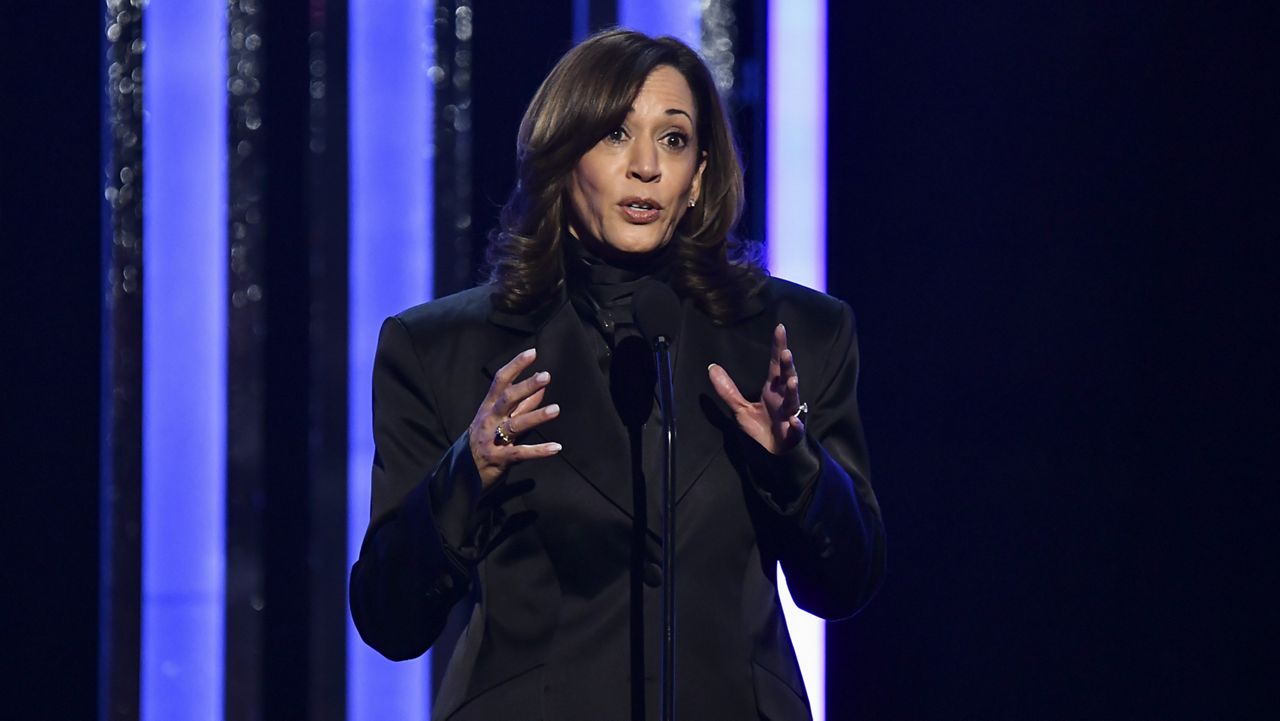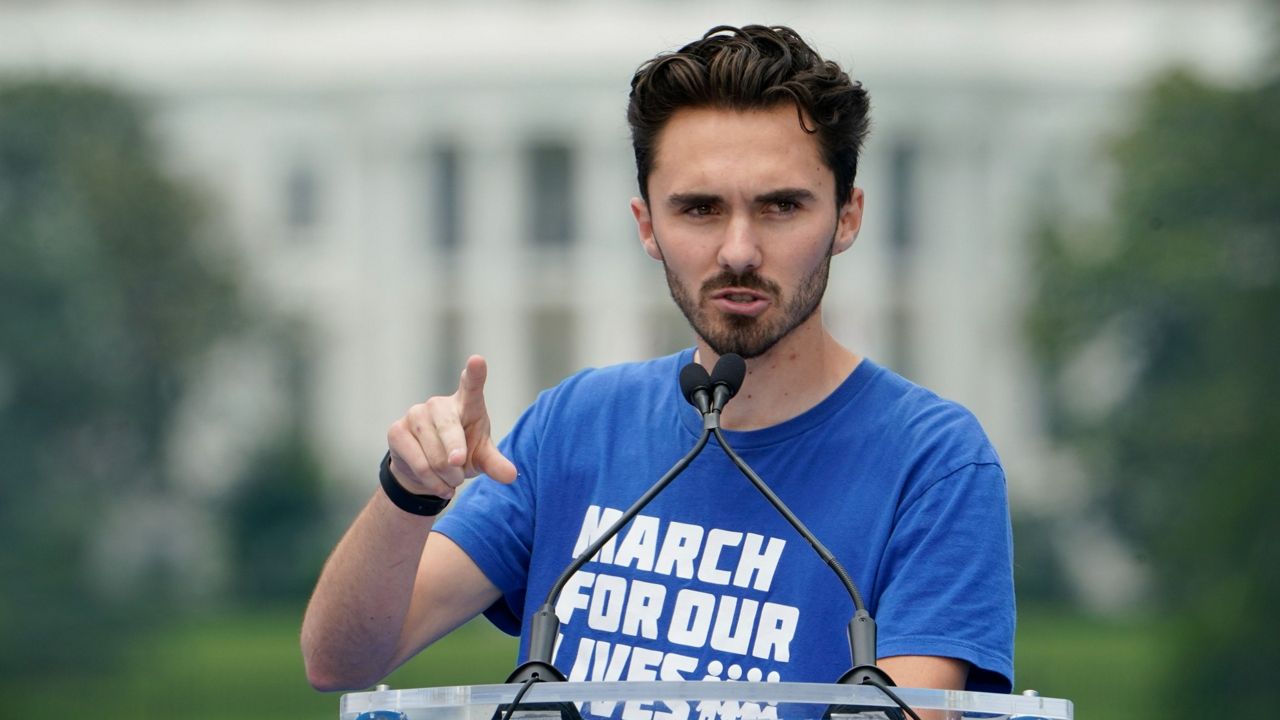Congress will vote on legislation Wednesday to potentially bar TikTok from the U.S. if its Chinese parent company ByteDance doesn’t divest its stake in the company.
Supporters of the legislation say it is more about creating a structure to protect Americans from apps controlled by foreign adversaries, rather than targeting the social media platform.
“This is not a ban per se on TikTok as much as a requirement that ByteDance, the parent company of tick tock, divest the assets for the United States to a United States company,” said Rep. Mike Levin, D-California. “I think that actually is a fair and reasonable request given that the Chinese Communist Party potentially could use the data and violate the privacy of those TikTok users.”
It’s a bill that has received bipartisan support despite some lawmakers' offices being bombarded by calls from constituents about not banning the app.
“Constituents obviously concerned that we are taking action to restrict the use of an app that’s used by almost 180 million Americans paired with constituents who are glad that we are acting to try and secure the national defense and to protect against foreign ownership of new sources,” said Rep. Jay Obernolte, R-Calif. His office has been receiving calls from constituents of all ages about the legislation.
“The other day we were having this intense debate about the degree to which an app like TikTok could be politically weaponized to shift public opinion. And TikTok then unfortunately took the action of weaponizing the app themselves and having a pop up that everyone that tried to log into TikTok first had to go call their congressperson and tell them not to shut down the app. I mean, that was very concerning,” Obernolte added.
But before the House casts their vote, a handful of lawmakers are voicing their opposition to the chamber moving so quickly on the bill. Rep. Sara Jacobs, D-Calif., called banning the app in the name of protecting Americans data “a blunt instrument to address a very real problem.”
“We need comprehensive data privacy legislation and thoughtful guardrails for social media platforms — not another Red Scare. Not a single thing that we heard in today’s briefing was unique to TikTok. It was things that happen on every single social media platform,” said Jacobs.
Jacobs was joined by Reps. Robert Garcia, D-Calif., Maxwell Frost, D-Fla., and Delia Ramirez, D-Ill., at a press conference Tuesday afternoon after lawmakers received a classified briefing from the Department of Justice and FBI Tuesday about the app.
Standing outside the Capitol, the group of lawmakers surrounded by content creators holding signs reading #SaveTikTok and with quotes that “TikTok helped me grow my business.” Frost told the crowd he was a “hell no” when it came to Wednesday’s planned House vote.
“There’s only a few players who can even afford to buy something like TikTok, which puts us into antitrust territory. There are automatic pauses that are put from a month to a year that can inhibit on this five-month period that we put up,” argued Frost. “Essentially what this bill is doing is setting this wholesale up to fail, and I truly believe that there’s too much ambiguity here to mess with, especially when we’re talking about an application that is a huge part of our lives and of for small businesses and content creators here in the United States.”
Garcia, who said he has been using the social media platform long before he was sworn in as a member of Congress, and that it’s an essential outlet for his constituents.
“Congress is rushing this, and they have to slow down,” warned Garcia. “I don’t think people understand the impact. When you have a platform that is used by 170 million people, especially young people, and then all of a sudden it stops. You’re talking about people’s livelihood, you’re talking about the main way some people communicate. It’s insane.”
“Protecting data for Americans is really important, protecting actual people’s information is really important. And let’s be honest, yes, there is actually data concerns and misinformation actually on TikTok, but there also is on so many other social media brands. And so we’ve got to treat everybody equally.”
For the casual user and content creator, TikTok is a space they have built a community. For Dani Morin, a mom and content creator from Fontana, Calif., she uses the platform to tell the story of her son Deacon, who died after being strangled by a baby toy at his daycare. Deacon would have been 9-years-old on Wednesday.
“I started posting on TikTok because all my other ways of trying to get his story out there and advocate against the use of these dangerous baby products and change the child care system — I’ve been here so many times with child care of America trying to make my voice heard,” said Morin, gesturing behind her at the Capitol.
Morin, who has over 728,000 followers on the platform, uses her videos to share child safety tips, mom hacks and other information she thinks fellow moms can relate to.
“The mom community is so strong on TikTok, and I’ve been able to help so many moms. Taking this away, think of what valuable information are moms not going to be able to have because it’s not going to be on TikTok anymore. You’re not finding it on the other apps,” she added. “When you look at moms in their mental health, finding a community on TikTok is huge.”
TikTok has been fighting back against the looming Congressional action, posting on X, formerly known as Twitter, that “this legislation has a predetermined outcome: a total ban of TikTok in the United States. The government is attempting to strip 170 million Americans of their constitutional right to free expression. This will damage millions of businesses, deny artists an audience, and destroy the livelihoods of countless creators across the country.”
If the House passes the bill, it will head to the Senate for consideration, where its future is unclear.
President Joe Biden has signaled he would sign the bill if it makes its way to his desk.
But his opponent in November, former President Donald Trump, emerged as a surprising force against the bill. In an interview on Monday, the presumptive Republican presidential nominee said that he acknowledged TikTok is a security risk, but opposed banning it because it would help Facebook.
"Frankly, there are a lot of people on TikTok that love it. There are a lot of young kids on TikTok who will go crazy without it," Trump told CNBC. "There's a lot of good and there's a lot of bad with TikTok. But the thing I don't like is that without TikTok you're going to make Facebook bigger, and I consider Facebook to be an enemy of the people, along with a lot of the media."










